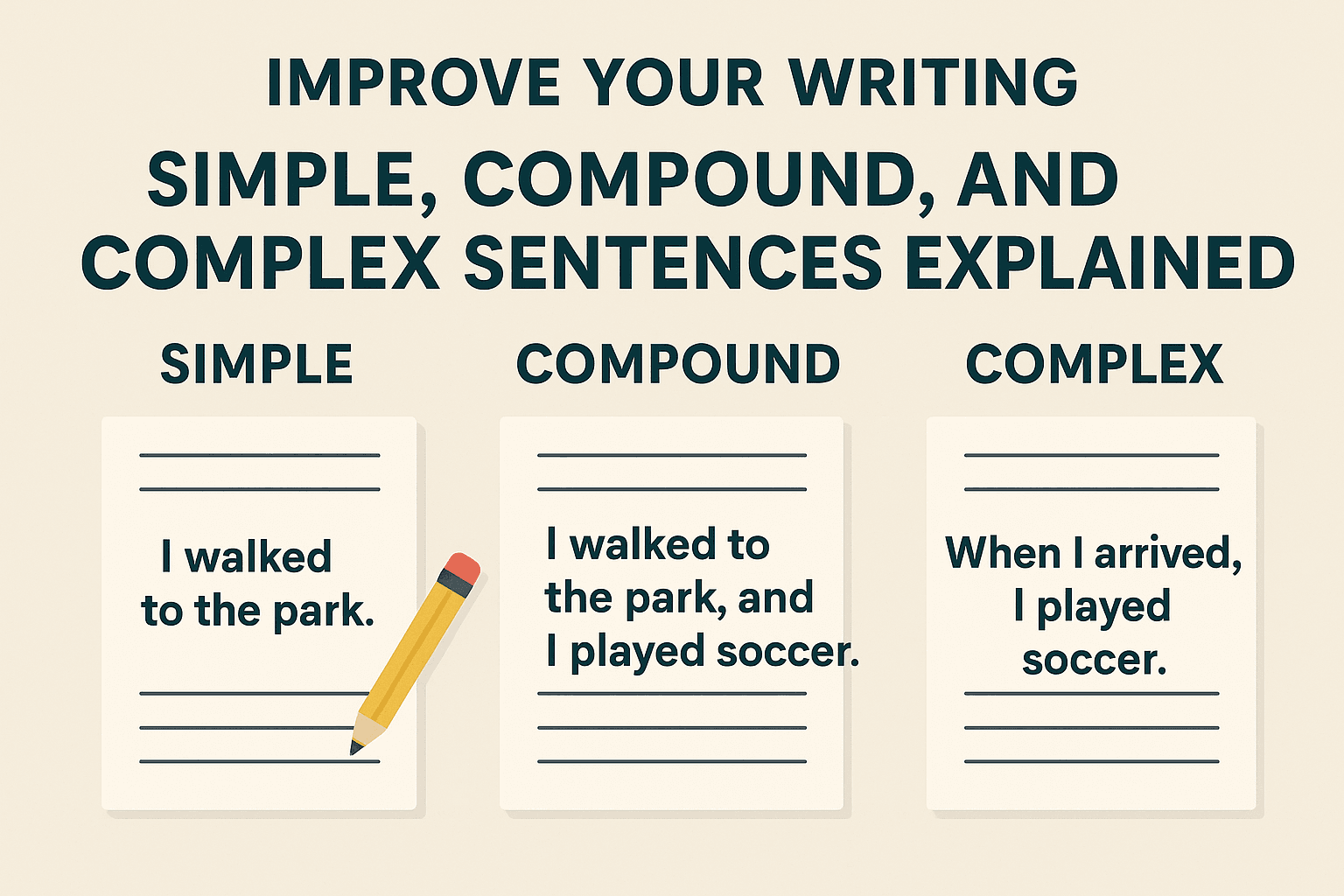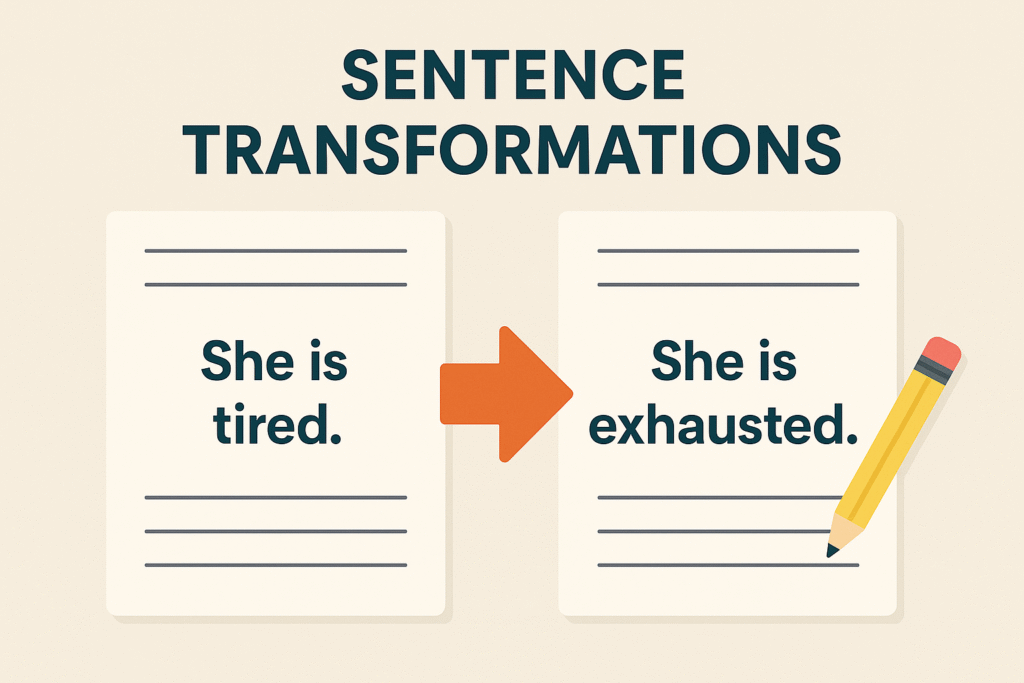
When it comes to mastering English writing skills, understanding the structure of sentences is crucial. Whether you’re preparing for exams like IELTS or just want to become a better communicator, learning how to write simple, compound, and complex sentences can dramatically improve your clarity and fluency.
In this blog, we’ll break down the differences between these three sentence types and show you how to use them effectively to improve your writing skills.
What is a Simple Sentence?
A simple sentence contains a single independent clause. It has a subject with a finite verb.
🔹 Example: I enjoy reading.
This sentence has just one subject-verb pair. It’s short, clear, and to the point—perfect for direct communication.
When to Use:
To state facts or opinions clearly
In instructions and headlines
For strong emphasis
What is a Compound Sentence?
A coordinating conjunction (for, and, nor, but, or, still, so) joins two separate clauses in a compound sentence.
🔹 Example: I enjoy reading, and I write daily.
Here, two related ideas are combined into one sentence, making your writing smoother and more connected.
When to Use:
To show a relationship between two equal ideas
To add variety to your sentence structure to avoid repetition

What is a Complex Sentence?
A difficult sentence is composed of one independent clause and one or more dependent clauses.. Subordinating conjunctions such as although, because, when, while, since, and so on are connected to these.
🔹 Example: Because I enjoy reading, I visit the library often.
Complex sentences allow you to explain more details and express deeper thoughts.
When to Use:
To explain reasons, time, or conditions
To add depth and meaning
To show cause and effect
- Why Sentence Variety Matters?
Using a mix of sentence types makes your writing more engaging and professional. Whether you’re writing a blog, email, or exam response, varied sentence structure helps you:
Keep the reader interested
Convey your message more effectively
Score higher in writing assessments
Sentence Transformation Practice
Being able to transform one sentence type into another is a great way to learn flexibility in writing.
👉 Simple: She is tired.
👉 Transformed (complex): Because she worked all day, she is tired.
👉 Transformed (compound): She worked all day, and she is tired.
Want to practice sentence transformation or improve your grammar skills? Try rewriting your daily thoughts using different sentence structures.
- Final Thoughts
Whether you’re a student, a job seeker, or someone who wants to write better English, mastering sentence structures is a great starting point. Understanding simple, compound, and complex sentences is key to writing clearly, persuasively, and confidently.
Ready to Upgrade Your Writing?
At EnglishMasterz, we help students and professionals improve their grammar, sentence structure, and communication skills through structured training and expert-led classes. Join our online or offline courses today to start your journey towards confident English writing.